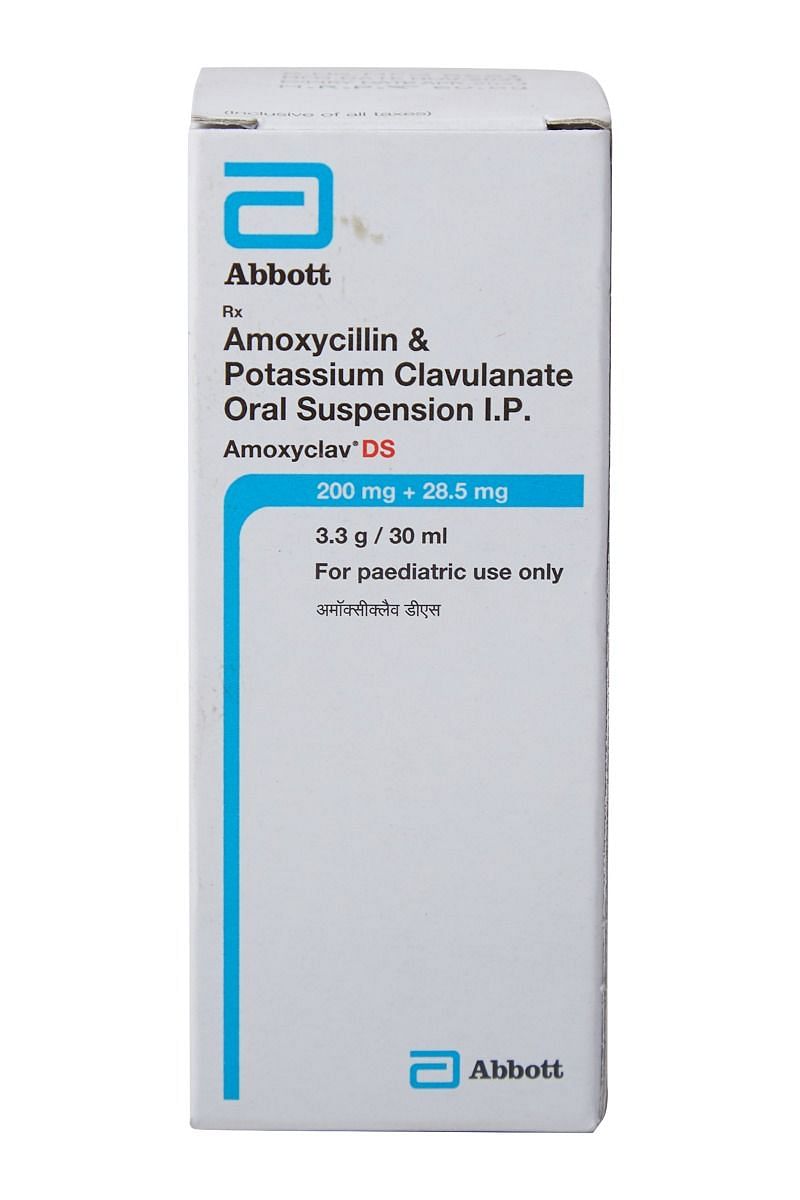
Ultimox Clav Dry Syrup
Manufacturer
Emcure Pharmaceuticals Ltd
Salt Composition
Amoxycillin (200mg) + Clavulanic Acid (28.5mg)
Key Information
Short Description
Ultimox Clav Dry Syrup is an antibiotic medicine that helps treat bacterial infections of the ear, nose, throat, chest, lungs, teeth, skin, and urinary tract.
Dosage Form
Dry Syrup
Introduction
Ultimox Clav Dry Syrup is an antibiotic medicine that helps treat bacterial infections of the ear, nose, throat, chest, lungs, teeth, skin, and urinary tract. It is capable of killing bacteria that have become resistant to other therapies and thus also helps treat tuberculosis that is resistant to other treatments.
Directions for Use
Never give Ultimox Clav Dry Syrup until and unless prescribed by the doctor. You must also never share your child’s medicine with anyone else even if they show similar symptoms.
Safety Information
Side Effects
No common side effects listed.
How it works
Ultimox Clav Dry Syrup is an antibiotic. It has two active agents amoxycillin and clavulanic acid. Amoxycillin works by preventing the formation of the bacterial protective covering (cell wall) essential for the survival of the bacteria. Whereas clavulanic acid serves a special purpose of inhibiting an enzyme (beta-lactamase) that is produced by resistant bacteria. This makes the combination of amoxycillin and clavulanic acid an effective line of treatment for many types of infections.
Quick Tips
Your child may have a bitter taste in the mouth after the intake of Ultimox Clav Dry Syrup. Eating citrus fruit or sipping plenty of water or fruit juice may help. Encourage your child to drink plenty of water in case diarrhea develops as a side effect. Never give Ultimox Clav Dry Syrup to treat common cold and flu-like symptoms caused by viruses. Never save medicine for future illnesses. It cannot be said whether the same medicine will work on future infections. Check ‘expiry’ before giving Ultimox Clav Dry Syrup to your child. Immediately discard all the expired medicines. Stop Ultimox Clav Dry Syrup immediately if your child develops an itchy rash facial swelling or breathing difficulty. Report to the doctor without any delay.
Related Medicines

Amoxyclav Dry Syrup

Moxikind-CV Dry Syrup

Advent 228.5mg Dry Syrup Tangy Orange

Victoclav Dry Syrup

Iroclav Dry Syrup

Saramox CV Dry Syrup

Clavomin Dry Syrup

Plymox CV Dry Syrup

Man Clav Dry Syrup

Leafclav DS Dry Syrup
Frequently asked questions
Can other medicines be given at the same time as Ultimox Clav Dry Syrup?
Ultimox Clav Dry Syrup can interact with other medications or substances. It's important to tell your child's doctor about all medications they are currently taking before starting this medication. Consult with your child's healthcare provider for guidance on administering any additional medicine.
Can I get my child vaccinated while on treatment with Ultimox Clav Dry Syrup?
Antibiotics typically do not interfere with the ingredients in vaccines or cause adverse reactions. However, children receiving antibiotics should wait to be vaccinated until they recover from their illness. Once your child feels well enough, then a vaccine can be administered.
Which lab tests may my child undergo while taking Ultimox Clav Dry Syrup on a long-term basis?
Periodically, during prolonged therapy, the doctor may monitor kidney and liver function tests to assess your child's condition.
Can I give a higher than the recommended dose of Ultimox Clav Dry Syrup to my child?
No, exceeding the recommended dosage of this medication can increase the likelihood of adverse effects. If your child experiences an intensification of symptoms, consult with their doctor for re-evaluation.
Can I stop giving Ultimox Clav Dry Syrup to my child when the symptoms are relieved?
No, do not discontinue this medicine without completing the entire prescribed course even if you feel better. Symptoms may improve before the infection is completely eradicated. Therefore, continue taking the medication as prescribed until the full course is finished.
Can the use of Ultimox Clav Dry Syrup cause diarrhea?
Yes, Ultimox Clav Dry Syrup can cause diarrhea. This medication works by killing harmful bacteria and may also disrupt the beneficial bacteria in your child's stomach, leading to diarrhea. Encourage your child to drink plenty of fluids if they experience diarrhea. It is crucial to seek medical advice from a doctor if diarrhea persists or if you notice any signs of dehydration, such as decreased urination with dark-colored and strong-smelling urine. Do not give your child any other medication without consulting a doctor.
Do all viral common colds result in secondary bacterial infection?
Most viral infections do not lead to secondary bacterial infections. Giving antibiotics in viral infections can increase your child's risk of adverse effects, so it should only be used after consulting with your child's doctor.
The mucus coming out of my child’s nose is yellow-green. Is it a sign of a bacterial infection?
Yellow or green mucus in the nose does not necessarily indicate the need for antibiotics. During a common cold, it's normal for mucus to thicken and change color from clear to yellow or green. Symptoms usually last 7-10 days.
Is there any sign which shows that my child needs immediate medical attention?
You should contact your child's doctor immediately if they experience serious allergic reactions (breathing problems, skin rashes), gastrointestinal infections (diarrhea), or liver damage (weakness, paleness, vomiting). While rare, these side effects are significant and require expert medical attention.


